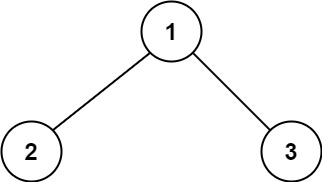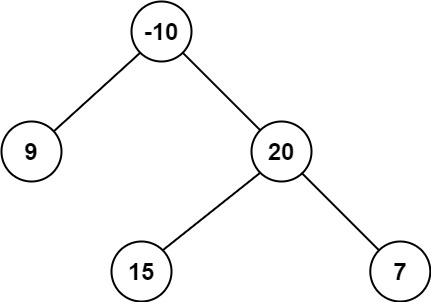0124: Binary Tree Maximum Path Sum
Problem Statement
A path in a binary tree is a sequence of nodes where each pair of adjacent nodes in the sequence has an edge connecting them. A node can only appear in the sequence at most once. Note that the path does not need to pass through the root.
The path sum of a path is the sum of the node's values in the path.
Given the root of a binary tree, return the maximum path sum of any non-empty path.
Example 1:

Input: root = [1,2,3] Output: 6 Explanation: The optimal path is 2 -> 1 -> 3 with a path sum of 2 + 1 + 3 = 6.
Example 2:

Input: root = [-10,9,20,null,null,15,7] Output: 42 Explanation: The optimal path is 15 -> 20 -> 7 with a path sum of 15 + 20 + 7 = 42.
Constraints:
- The number of nodes in the tree is in the range
[1, 3 * 104]. -1000 <= Node.val <= 1000
Code Solution
class Solution:
def maxPathSum(self, root):
cmax = float('-inf')
def rec(node):
nonlocal cmax
if not node:
return 0
lsum = max(0, rec(node.left))
rsum = max(0, rec(node.right))
cmax = max(cmax, node.val + lsum + rsum)
return node.val + max(lsum, rsum)
rec(root)
return cmax